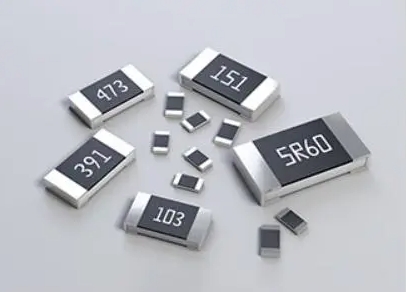Thick film resistors are known as "industrial rice", a metaphor derived from their fundamental, widespread, and indispensable role in the electronics industry, similar to the position of rice in the diet. The following is a specific analysis of the reasons:

Fundamentally: the "staple food" of the electronics industry
Ubiquitous applications: Thick film resistors are one of the most fundamental components in electronic circuits, almost present in all electronic products such as smartphones, computers, automotive electronics, medical equipment, etc. It undertakes core functions such as current limiting, voltage division, and filtering, and is the cornerstone of normal circuit operation.
Industrial support role: As a type of electronic component, thick film resistors are the fundamental link in the electronic industry chain. Its stable supply and quality assurance are directly related to the normal operation of the entire electronics industry, similar to the supporting role of rice in the grain industry.
Universality: Penetrating into various fields of industry
Cross industry applications: Thick film resistors have a wide range of application scenarios, covering multiple fields such as consumer electronics, communication equipment, industrial control, automotive electronics, and new energy. For example:
Power supply and circuit stabilizer: used to regulate current and voltage to ensure stable operation of equipment.
Sensors and detectors: used in industrial automation for precise measurement of parameters such as temperature and pressure.
Automotive electronics: used for key systems such as battery management and motor control.
In the field of new energy, it plays an important role in solar inverters and charging stations.
Adapting to diverse needs: Whether it is low-cost consumer electronics or high reliability industrial equipment, thick film resistors can meet the needs of different scenarios by adjusting materials, sizes, and precision.
Cost and Reliability: The 'Optimal Solution' for Industrial Production
Low cost advantage: Thick film resistors use screen printing technology, which is simple to manufacture, cost-effective, and suitable for large-scale production. This characteristic makes it one of the most cost-effective choices in industrial production.
High reliability: Thick film resistors can operate stably in harsh environments such as high temperature, high humidity, and vibration, with high durability and impact resistance, meeting the stringent reliability requirements of industrial applications.
Technological Evolution: Continuously Promoting Industrial Upgrading
Miniaturization and Integration: With the development of electronic devices towards slimness and intelligence, thick film resistors continue to evolve towards miniaturization and high precision. For example, 01005 thick film patch resistors (0.4mm × 0.2mm) have become the mainstream in the industry.
Material and process innovation: By optimizing the formulation of resistor paste and sintering process, the performance of thick film resistors (such as accuracy and temperature coefficient) continues to improve, further expanding their application scenarios.
Thick film resistors are called "industrial rice" because, like rice, they are an indispensable "basic ingredient" in the electronics industry. Its wide range of application fields, low cost and efficient production characteristics, and stable and reliable performance collectively constitute its core position in industry. Whether it is daily consumer electronics or high-end industrial equipment, thick film resistors silently play a key role in supporting the operation of the entire electronics industry.
